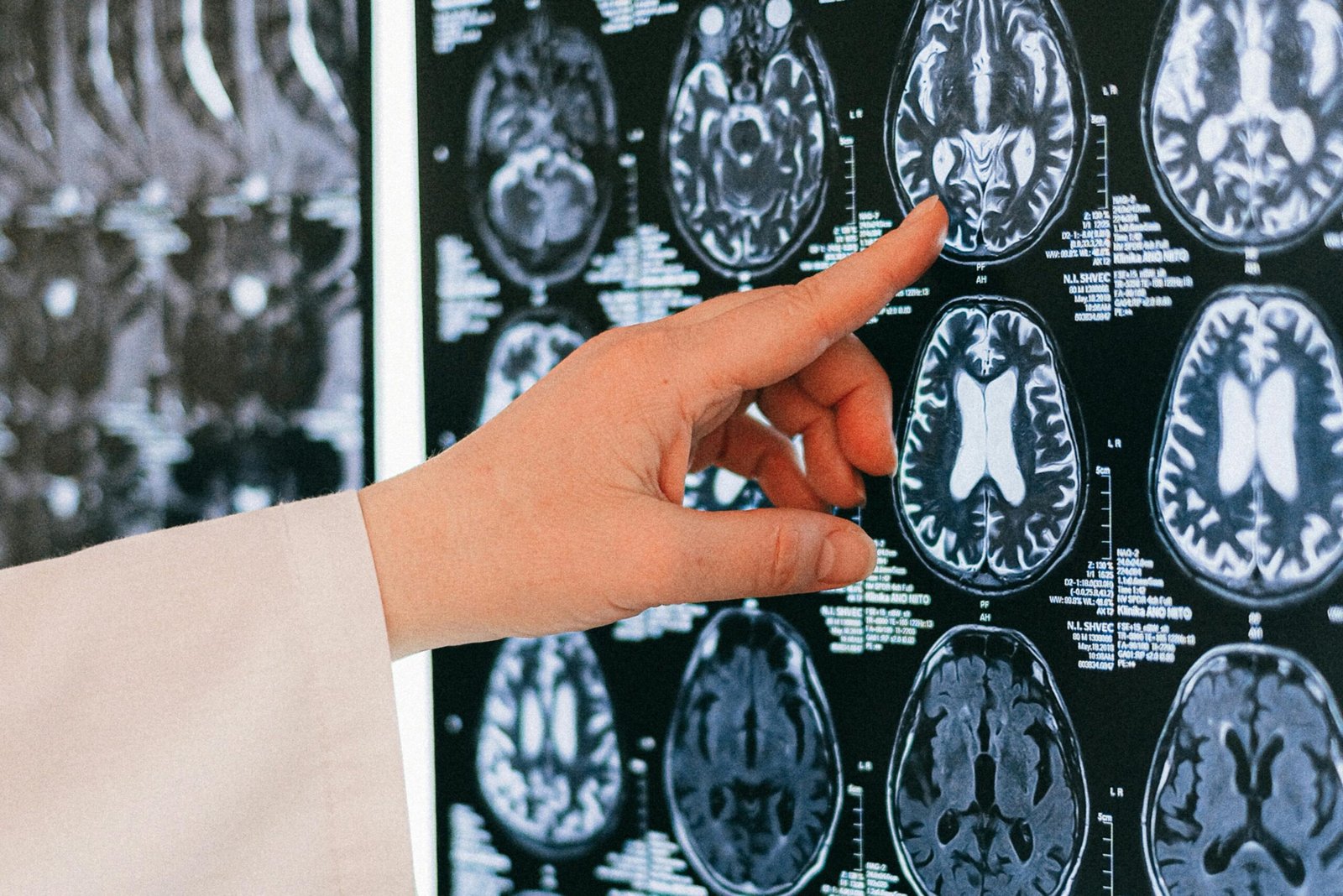AI Can Now Translate Brainwaves into Words

For decades, mind-reading was a concept reserved for science fiction. But researchers have now developed AI models capable of translating brainwave patterns into readable text. By using functional magnetic resonance imaging (fMRI) and electroencephalography (EEG), scientists can analyze the electrical activity of the brain and correlate it with words and phrases. This breakthrough means that machines can now understand what a person is thinking—without them ever speaking a word.
This technology is already being tested to help patients with speech impairments communicate. Instead of typing or using gestures, their thoughts can be converted directly into sentences. However, experts worry that this level of access to human thoughts could lead to serious privacy concerns. If thoughts can be decoded, could they also be manipulated?
AI Mind-Reading Works Without Implants
Previously, brain-computer interfaces required invasive surgeries to implant electrodes into the brain. But new AI-driven systems decode thoughts using external sensors, eliminating the need for surgery. This is done by analyzing non-invasive brain scans, making the technology more accessible to a broader population. If perfected, AI could one day allow people to communicate telepathically without any physical effort.
While this development opens doors for new assistive technologies, it also raises serious ethical concerns. If AI can interpret thoughts with just a headset, what’s stopping companies or governments from accessing private mental data? Laws around brain privacy are still unclear, and some experts fear a future where thoughts could be monitored or even monetized.
Scientists Used AI to Visualize Human Thoughts
Beyond words, AI has now advanced to visualizing mental images. By scanning brain activity, deep-learning models can reconstruct pictures of what a person is imagining. Researchers trained AI using fMRI scans, teaching it to recognize neural patterns associated with specific objects, colors, and shapes. In experiments, the AI successfully recreated images of animals, people, and places directly from a person’s thoughts.
This advancement could revolutionize dream analysis, art creation, and even criminal investigations. However, it also brings new fears of mental surveillance. If AI can visualize thoughts, could it one day be used to extract confidential information, memories, or even expose subconscious biases?
AI-Powered Brainwave Readers Could Enhance Education
Imagine an AI-powered tutor that reads a student’s brainwaves to understand how well they grasp a topic. Scientists are working on technology that analyzes real-time brain activity to determine engagement levels, focus, and comprehension. This could lead to personalized learning systems that adjust material based on how a student’s brain responds, making education far more effective.
However, critics argue that this level of monitoring invades cognitive privacy. If schools or companies begin tracking brain activity, could students or employees be penalized for being distracted? The debate around the ethics of monitoring human cognition is only beginning, but the possibilities of AI-enhanced learning remain groundbreaking.
Governments Are Already Exploring AI Mind-Reading for Security
While AI-driven brainwave analysis is being developed for healthcare and education, governments are also exploring its potential for national security. Some defense agencies are investing in neurotechnology to detect deception, assess threats, and even predict criminal intent. The idea is that AI could scan brain activity to identify hidden intentions before a crime is committed.
This technology could change the future of policing and intelligence, but it also raises serious human rights concerns. If AI starts analyzing people’s thoughts, what happens to personal freedom? Could individuals be punished for thoughts they never acted on? As governments experiment with these tools, the balance between security and mental privacy becomes a major ethical challenge.
AI Mind-Reading Could Revolutionize Therapy

Mental health professionals are exploring how AI-driven mind-reading could transform therapy sessions. By analyzing subtle neural activity patterns, AI might be able to detect anxiety, depression, and post-traumatic stress disorder (PTSD) before patients even verbalize their struggles. This could lead to more personalized treatments and faster interventions, potentially saving lives.
However, the idea of AI diagnosing mental health conditions without explicit consent is controversial. Critics argue that such technology could be misused by employers, insurance companies, or even governments to make decisions about people’s mental fitness. The ability to detect mental health conditions without an individual’s knowledge or approval raises significant ethical questions about autonomy and consent.
Companies Are Racing to Patent Brain-Reading Tech
Tech giants and startups alike are fiercely competing to secure patents on mind-reading AI. Companies such as Meta, Google, and Neuralink have already filed patents for brain-computer interfaces, aiming to commercialize thought-controlled devices. Some envision a future where people can control smartphones, computers, and even home appliances simply by thinking.
While this presents exciting possibilities for accessibility, particularly for individuals with disabilities, it also raises concerns about corporate control over cognitive data. If companies own the technology that deciphers thoughts, could they also collect and sell mental data like they do with online behavior? The race for patents could determine who controls the next generation of human-computer interaction.
AI Could Soon Predict Decisions Before You Make Them
Neuroscientists are working on AI models that predict decisions before they are consciously made. Studies suggest that the brain forms intentions milliseconds before a person becomes aware of them, and AI can detect these pre-conscious signals. This means that, in theory, a machine could anticipate actions before a person even realizes they are going to take them.
This ability could have powerful applications in medicine, such as helping patients with motor impairments regain control over their movements. But it also raises concerns about free will and autonomy. If AI can predict decisions, could it also be used to influence or override them? The implications of such technology go beyond convenience—they touch on the fundamental nature of human agency.
AI-Powered Thought Monitoring Could Shape Politics
Some experts warn that AI-driven mind-reading could be used to assess political beliefs and ideological leanings. Governments or corporations could analyze brain activity to determine voting preferences, personal biases, or political loyalty. This could lead to targeted propaganda, behavioral prediction, and even suppression of dissent.
The ability to scan a person’s thoughts for ideological alignment raises ethical concerns about freedom of thought. If such technology becomes widely used, could it influence democratic processes? The potential for misuse in political arenas is a growing concern.
AI Could Read and Manipulate Memories
Researchers are investigating whether AI could not only read memories but also alter them. Brain stimulation experiments suggest that artificial intelligence could influence how people recall past events. While this could help treat trauma or memory disorders, it also opens the door to potential manipulation.
If AI can change memories, what safeguards would prevent abuse? The ability to rewrite personal history could be exploited for propaganda, coercion, or even rewriting legal testimony. The ethical ramifications of such power are staggering.
AI Could Be Used to Detect Lies More Accurately
Scientists are developing AI-powered systems that could revolutionize lie detection by reading brain activity instead of relying on traditional polygraphs. Unlike polygraphs, which measure physiological responses like heart rate and sweating, AI lie detectors analyze neurological signals to determine deception. By scanning brainwaves, researchers believe they can pinpoint the cognitive processes associated with truthfulness and dishonesty with far greater accuracy.
This breakthrough could transform legal investigations, national security, and corporate hiring practices. However, it also raises serious ethical questions about consent and mental privacy. If AI can detect deception before someone even speaks, could it be misused to police thoughts rather than actions? As this technology develops, society must grapple with how much access authorities should have to an individual’s most private mental processes.
AI Mind-Reading Could Blur the Line Between Thought and Action
One of the biggest concerns with AI-driven brainwave analysis is whether it can distinguish between thoughts and intentions. Studies suggest that people often think about actions they never actually perform, yet if AI is monitoring these signals, it could misinterpret harmless thoughts as potential threats. This could have serious consequences in law enforcement, security, and even workplace surveillance.
The ethical dilemma is clear—should people be judged for what they think, even if they never act on it? If AI-driven systems start treating thoughts as actions, society could face unprecedented privacy and legal challenges. Mental freedom has always been a fundamental human right, but this technology might push the boundaries of how thoughts are perceived and regulated.
The Future of AI Mind-Reading Is Both Exciting and Terrifying

The rapid advancements in AI-powered mind-reading have created a mix of fascination and fear. On one hand, these breakthroughs could help millions of people, from those with disabilities to individuals suffering from mental health disorders. But on the other, they introduce serious concerns about consent, privacy, and the potential for abuse by corporations and governments.
The question remains—how do we regulate this technology without stifling its benefits? Scientists and policymakers must work together to ensure that AI mind-reading enhances human life rather than becoming a tool for surveillance and control. As this field continues to evolve, the balance between progress and ethics will define its impact on society.
